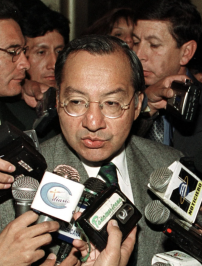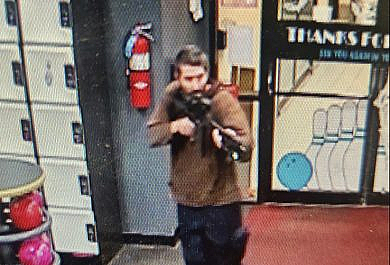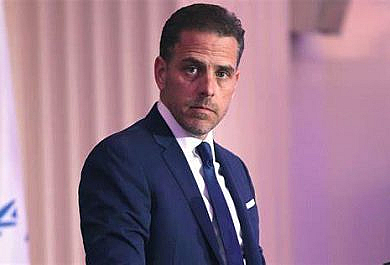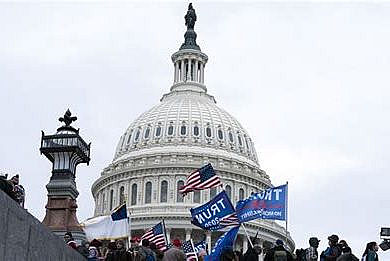A former US Ambassador to Bolivia and National Security Council official was arrested this week on charges of spying for the communist Cuban government for more than four decades.
Summary
Victor Manuel Rocha, a former US Ambassador to Bolivia and National Security Council official, was arrested this week on charges of spying for the communist Cuban government for more than four decades.
- The Justice Department alleges the 73-year-old Rocha “provided false and misleading information to the United States to maintain his secret mission; traveled outside the United States to meet with Cuban intelligence operatives; and made false and misleading statements to obtain travel documents,” as part of his four-decade-long career spying for Cuba.
- Rocha is accused of acting as a secret agent of Cuba since 1981, the year he joined the US Foreign Service. Rocha allegedly was proud his work “strengthened the revolution” against “the enemy”: the United States.
- Rocha rose through the ranks during his long career in the federal government to become one of the top officials for Latin America policy in the State Department during the Bill Clinton and George W. Bush administrations. He served as the top US envoy in Bolivia from 2000 to 2002 and advised US Southern Command, the region including Cuba, from 2006 to 2012.
- The former diplomat now faces charges of conspiring to act as an agent of a foreign government, acting as an agent of a foreign government and using a passport obtained by false statement. He made his first court appearance on Monday after his arrest in Miami on Friday.
- An FBI counterintelligence investigation contacted Rocha in November 2022 via WhatsApp with an undercover agent posing as Rocha’s new contact within the Cuban Intelligence Services. Rocha allegedly agreed to meet with his “friends in Havana” several times where he bragged about his work on behalf of the Castro regime and its successors.
- “I knew exactly how to do it and obviously the Dirección [the Cuban Intelligence Service] accompanied me … lt’s a long process and it wasn’t easy,” Rocha allegedly told the undercover FBI agents. Rocha was even indignant to have his loyalty to Cuba questioned, comparing it to “questioning my manhood.”
- “This action exposes one of the highest-reaching and longest-lasting infiltrations of the United States government by a foreign agent,” Attorney General Merrick Garland said in a statement. “Those who have the privilege of serving in the government of the United States are given an enormous amount of trust by the public we serve. To betray that trust by falsely pledging loyalty to the United States while serving a foreign power is a crime that will be met with the full force of the Justice Department.”
![]()
- “Mr. Rocha served as ambassador in Bolivia during another tense period, the 2002 presidential race, which included Evo Morales, an ardently anti-American Indigenous candidate who gained prominence as the leader of a union of coca growers. Mr. Morales lost that race but was elected president in 2005,” the New York Times noted. Rocha publicly warned voters against electing Morales, a warning that Morales – an ally of the Cuban government – claimed helped his presidential bid. Morales even nicknamed Rocha his “chief of campaign.”
- NBC News detailed Rocha’s final meeting with undercover FBI agents, where “Rocha allegedly took offense when the undercover agent questioned whether he was still loyal to Havana, ‘compañero.’ Rocha then used crude terms, saying such an inquiry is ‘like questioning my manhood.’ ‘I am angry. I’m pissed off,’ Rocha allegedly said. ‘It’s like you want me to drop them … and show you if I still have testicles.’”
- Rocha allegedly claimed to be “in charge” of an incident that resulted in the deaths of four men, according to CNN. During Rocha’s time at Foggy Bottom, Cuba shot down two unarmed planes piloted by four people working for the US-based group Brothers to the Rescue.
![]()
- The New York Post noted Rocha was also “the top US diplomat in Argentina between 1997 and 2000 as a decade-long currency stabilization program backed by Washington was unraveling under the weight of huge foreign debt and stagnant growth, triggering a political crisis that would see the South American country cycle through five presidents in two weeks.”
- Fox News observed Rocha’s other postings included work in Honduras, Mexico, Italy, and the Dominican Republic and as the top Latin America expert on the National Security Council.
- After leaving the State Department, Rocha joined the Council on Foreign Relations and the International Advisory Board of the University of Miami, according to Breitbart. Even in retirement, Rocha’s loyalty to Fidel Castro, who he called “The Comandante,” allegedly never wavered.
© Dominic Moore, 2023






